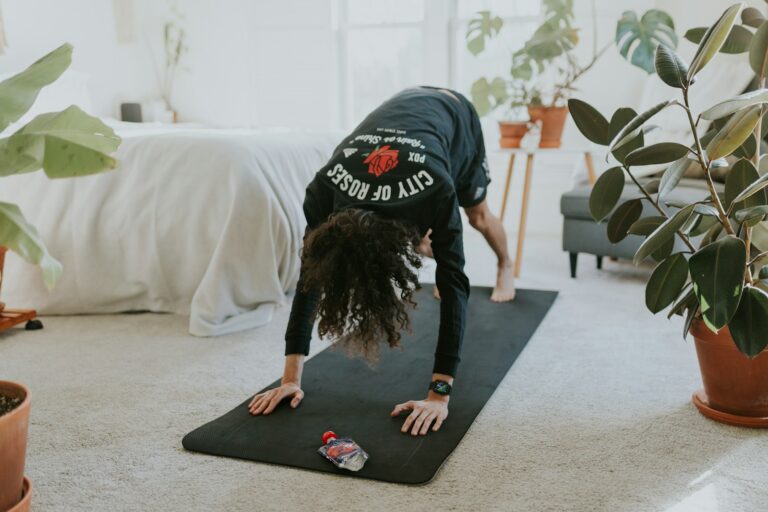Starting a workout routine at home feels exciting at first—but for many, the challenge isn’t getting started, it’s staying consistent. The truth is, consistency is the single most important factor for building long-term heart health, strength, and endurance. Without it, even the best exercises won’t give you lasting results. This guide will help you create a realistic, sustainable, and motivating home fitness plan you can stick to for years.
Why Consistency Beats Intensity
Most people fall off their fitness goals because they start too aggressively—an hour of cardio one day, a heavy workout the next—only to burn out or get injured. Instead, consistency is key. Just 20–30 minutes of daily movement adds up to powerful long-term heart and health benefits. Over time, it’s not the hardest workouts that matter most, but the ones you actually do regularly.
Set Clear, Achievable Goals
Your fitness journey should start with a clear “why.” Do you want to lower your blood pressure, lose weight, or simply have more energy? Specific goals keep you motivated and provide a benchmark for success. For example, instead of saying “I want to exercise more,” set a goal like “I will complete 4 workouts per week for the next month.”
Create a Dedicated Workout Space
One way to remove friction is to carve out a small space in your home—whether it’s a corner of your living room or a spare bedroom—as your workout zone. Keep your yoga mat, resistance bands, or dumbbells there. By associating the space with fitness, you’re more likely to stay consistent. Even better, you eliminate the “I don’t have space” excuse.
Start Small and Progress Gradually
The biggest mistake beginners make is doing too much too soon. Start small with simple routines, such as 15 minutes of cardio or a short circuit workout. Gradually increase time, intensity, or complexity as your body adapts. This approach helps build confidence, prevents injury, and keeps you motivated without overwhelming your schedule.
Plan Your Week in Advance
Scheduling workouts like appointments makes them harder to skip. Write your sessions into your calendar or use a fitness app to set reminders. For example, you might plan cardio on Mondays and Thursdays, strength training on Tuesdays and Fridays, and yoga or stretching on weekends. Following a plan removes guesswork and creates structure.
Mix It Up to Stay Engaged
Doing the same workout every day can lead to boredom and plateaus. Mix things up with a variety of home-friendly activities: bodyweight cardio, resistance band workouts, yoga flows, or even dancing. If you want ideas for variety, check out our guide on 10 Simple Home Exercises That Boost Cardiovascular Health.
Track Your Progress
Monitoring your progress keeps motivation alive. You can track how many workouts you complete each week, how long you exercise, or how many reps you achieve. Even something as simple as recording your workouts in a notebook can help. For heart-specific tracking, check your resting heart rate weekly—if it decreases over time, your cardiovascular fitness is improving.
Use Accountability Tools
Accountability can make the difference between skipping a workout and showing up. Join online fitness groups, work out with a friend over video call, or share your progress on social media. Having someone else invested in your journey makes it harder to back out. For added motivation, consider joining our Affiliate Program, where you can even turn your fitness journey into an income stream.
Listen to Your Body
Consistency doesn’t mean pushing through pain or exhaustion. Rest days are part of the process. Overtraining can increase stress hormones and elevate blood pressure, which works against your heart health. Pay attention to signals like prolonged soreness, poor sleep, or lack of energy. Sometimes the most consistent thing you can do is rest and recover.
Combine Exercise With Heart-Healthy Habits
Exercise works best when paired with other positive lifestyle choices. For example, staying hydrated supports muscle function and heart efficiency, while eating a balanced diet fuels recovery. For inspiration, explore our article on The Best Natural Sweeteners for a Healthy Heart to discover healthier nutrition swaps that complement your fitness routine.
Stay Motivated With Rewards
Finally, reward yourself for consistency—not with junk food, but with meaningful incentives. Buy new workout gear, treat yourself to a relaxing massage, or enjoy an activity you love. Celebrating progress reinforces positive behavior and helps turn exercise into a long-term habit.
Final Thoughts
Consistency is the real secret to a successful home fitness journey. By starting small, setting realistic goals, and creating an environment that supports your efforts, you’ll build habits that last. Remember: it’s not about perfection, it’s about progress. A consistent fitness routine will not only strengthen your body but also protect your heart and improve your quality of life for years to come.





